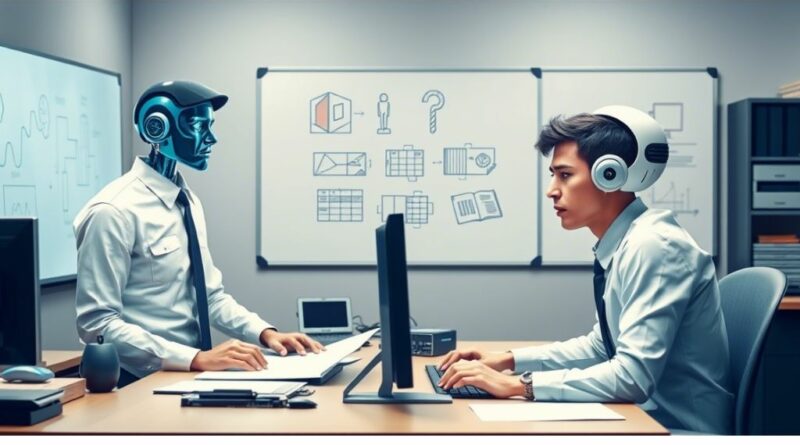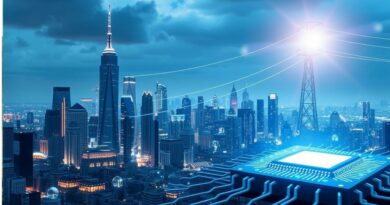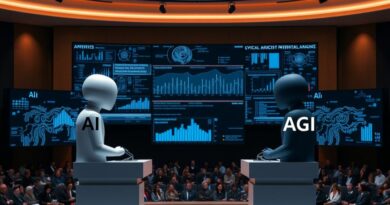AI – Is My Job Safe?
In a world increasingly shaped by artificial intelligence (AI), one question looms large: what does the future hold for human labour? Renowned historian and futurist Yuval Noah Harari has spent years exploring this very issue, offering both cautionary warnings and hopeful insights into how humanity can navigate the coming decades. His work, alongside that of other thinkers in technology, economics, and sociology, paints a complex picture of which jobs may remain safe from automation—and which ones might not.
Jobs Likely to Survive the Rise of AI
According to Harari and others, certain professions are less likely to be fully automated due to their reliance on uniquely human traits such as creativity, emotional intelligence, and complex decision-making under uncertainty. Here’s a closer look:
1. Creative Fields
Artists, writers, musicians, and designers often operate in realms where originality and personal expression reign supreme. While AI can mimic styles or generate content based on existing patterns, it struggles with true innovation and the deep emotional resonance that humans bring to creative endeavours. Harari notes that while tools like DALL-E or ChatGPT can assist creatives, they cannot replace the authenticity and depth of human imagination.
2. Caregiving Professions
Nurses, therapists, teachers, and social workers deal with deeply personal and unpredictable human interactions. These roles require empathy, intuition, and adaptability—qualities that current AI systems lack. Harari emphasizes that machines excel at processing data but fall short when it comes to understanding the nuances of human emotions and relationships.
3. High-Level Strategic Roles
Executives, policymakers, and strategists must grapple with ambiguity, long-term planning, and ethical considerations. Although AI can analyze vast amounts of information quickly, it lacks the ability to make value-laden decisions rooted in cultural context, moral frameworks, and political dynamics. As Harari points out, these roles demand judgment calls that go beyond algorithms.
4. Manual Labour Requiring Flexibility
While many repetitive manual tasks have already been automated, some physically demanding jobs that involve unpredictability—such as construction, plumbing, or gardening—are harder to automate. Machines struggle with irregular environments and fine motor skills, making these occupations relatively secure for now.
Jobs at Risk from Automation
On the flip side, numerous professions face significant threats from advancing AI technologies. Harari warns that any job involving predictable, rule-based activities is vulnerable to displacement. Below are some examples:
1. Routine Administrative Work
Data entry clerks, accountants, and paralegals perform tasks that are highly structured and repetitive—precisely the kind of work AI excels at. Tools like robotic process automation (RPA) and advanced analytics are already replacing human workers in these areas.
2. Manufacturing and Assembly Line Jobs
Robots have long dominated factory floors, and advancements in machine learning are expanding their capabilities further. From welding to packaging, machines can now handle intricate processes faster and more efficiently than humans.
3. Transportation and Logistics
Self-driving cars, drones, and autonomous delivery systems threaten millions of jobs in transportation. Truck drivers, taxi operators, and warehouse workers could see their roles diminished as AI-driven solutions become mainstream.
4. Customer Service
Chatbots and virtual assistants powered by natural language processing (NLP) are increasingly handling customer inquiries. While these systems still struggle with complex issues, they are rapidly improving and will likely replace many frontline service roles.
Proposed Solutions to Address Job Displacement
As AI reshapes the workforce, societies must prepare for its consequences. Harari and other experts propose several strategies to mitigate the impact of automation:
1. Universal Basic Income (UBI)
Some advocates argue that UBI—a regular, unconditional payment provided to all citizens—could help those displaced by AI maintain financial stability. By decoupling income from employment, UBI allows individuals to pursue education, entrepreneurship, or leisure without fear of poverty.
2. Lifelong Learning Initiatives
Education systems need to evolve to equip people with skills relevant to an AI-driven economy. Governments and companies should invest in retraining programs that focus on critical thinking, problem-solving, and digital literacy. Harari stresses the importance of fostering “learnability”—the capacity to continuously acquire new knowledge throughout life.
3. Encouraging Human-Centric Industries
Policymakers can incentivize growth in sectors that emphasize human interaction, such as healthcare, education, and entertainment. By prioritizing industries that rely on emotional intelligence and creativity, we can create meaningful opportunities for workers.
4. Regulating AI Development
To prevent unchecked automation from exacerbating inequality, governments must regulate AI development and deployment. This includes ensuring transparency in algorithmic decision-making, protecting worker rights, and promoting equitable access to technological benefits.
5. Promoting Ethical AI Design
Designing AI systems that augment rather than replace human capabilities can preserve jobs while enhancing productivity. For instance, medical diagnostic tools can support doctors without rendering them obsolete. Harari encourages developers to prioritize collaboration over competition between humans and machines.
A Vision for the Future
Yuval Noah Harari reminds us that the rise of AI presents both challenges and opportunities. While some jobs will undoubtedly disappear, others will emerge, and entirely new fields may arise that we cannot yet imagine. The key lies in preparing ourselves collectively for this transformation.
Ultimately, the future of work depends not just on technological progress but also on our values and choices as a society. Will we embrace a world where machines do most of the heavy lifting, freeing humans to explore art, science, and philosophy? Or will we allow automation to deepen inequalities and erode human dignity?
The answers lie ahead, shaped by the actions we take today. The imperative is for us to strive for a future where technology serves humanity—not the other way around. After all, as Harari so eloquently puts it, “The real question is not whether machines can think, but whether humans can continue to matter.”



